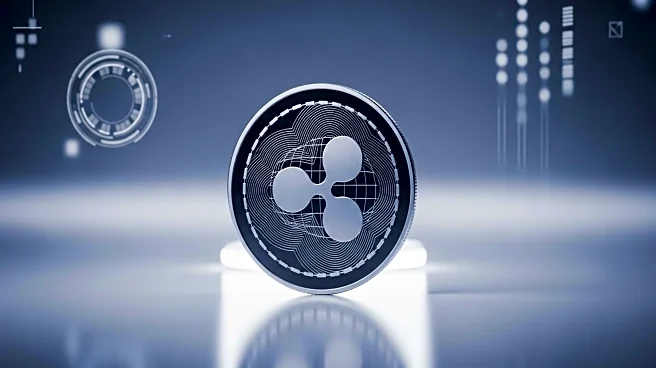What's Happening?
Ripple is positioning itself as a significant player in the global financial system, challenging the long-standing dominance of SWIFT in cross-border payments. Utilizing blockchain technology, Ripple's XRP offers advantages such as speed, cost efficiency, and programmability, which are reshaping institutional finance. Ripple's On-Demand Liquidity service, using XRP as a bridge currency, processed $1.3 trillion in transactions in Q2 2025, showcasing its scalability. The U.S. SEC's reclassification of XRP as a commodity has removed legal barriers, facilitating institutional adoption. Ripple's partnerships, including with SBI Holdings, are expanding its reach, particularly in Japan's remittance market.
Why It's Important?
Ripple's expansion signifies a potential shift in the cross-border payments landscape, which is valued at $150 trillion. By offering faster and cheaper transaction solutions, Ripple is eroding SWIFT's dominance, especially in high-volume corridors. This development could lead to significant cost savings for financial institutions and increased access to global markets. The regulatory clarity provided by the SEC enhances Ripple's appeal to institutions, potentially accelerating blockchain integration into traditional financial systems. Ripple's strategy to coexist with SWIFT rather than replace it suggests a collaborative future for blockchain technology in finance.
What's Next?
Ripple's continued growth and strategic partnerships indicate a trajectory towards capturing a significant share of the global payments market. SWIFT's adaptation, including testing Ripple's technologies, suggests a broader acceptance of blockchain as a complementary technology. Ripple's CEO projects that XRP could capture 14% of SWIFT's global volume within five years, potentially driving XRP's price higher. As institutional adoption accelerates, Ripple's network expansion and product offerings, such as the RLUSD stablecoin, will likely continue to evolve, influencing the future of global finance.
Beyond the Headlines
Ripple's challenge to SWIFT highlights the transformative potential of blockchain technology in finance. The shift towards decentralized systems raises questions about the future role of traditional financial institutions and the regulatory frameworks governing them. Ripple's approach, combining efficiency with compliance, offers a model for integrating blockchain into existing systems, potentially redefining global finance. The implications extend beyond payments, suggesting broader applications for blockchain in areas like asset management and financial services.









